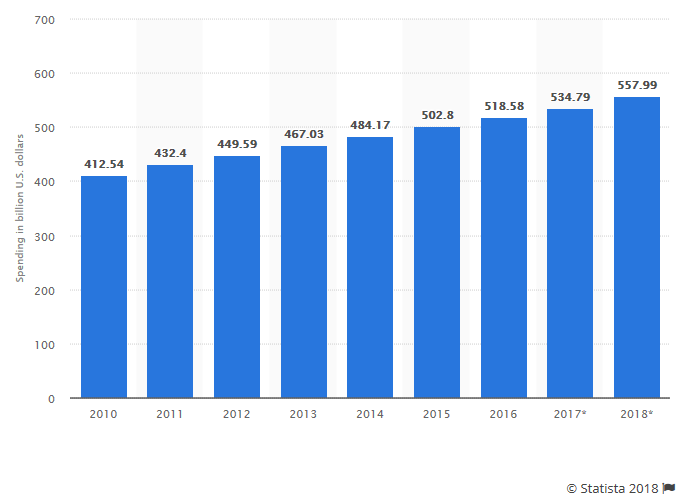Many publishers and content creators often try unsuccessfully to build businesses around the idea of affiliate marketing. Affiliate marketing sounds good on paper, you place ads about a product/service on your platform, your readers/viewers get to click the ad, a cookie is stored on their computer, and you get to earn a commission when they eventually make the purchase. In practice however, some powerbrokers known as affiliate networks control the relationship between merchants and publishers.
The value chain of the current ads network has the publisher displaying the ads, the customer clicks on the ads, and the merchant trusts the ad network to track the impression to be sure if it led a sale or not. After the sale, the publisher need to wait for the ad network to be paid by the advertising brand, and then, hoping that the advertising network will remit the cut of the ads revenue to the publisher. This piece provides insight into how blockchain technology could transform the global affiliate market with decentralized systems.
An urgent need for decentralization
The size of affiliate market globally is expanding quite rapidly, economists predict an annual growth rate of 4.3 percent to see advertising spend rising to $557.99B this year (see chart below).
Global advertising spending from 2010 to 2018 (in Billion U.S. dollar)
Unfortunately, the bulk of the business in the affiliate marketing market is controlled by a handful of ad networks. Google’s Doubleclick Ad Exchange, AdSense, Facebook’s Audience Network, Sovrn, and District M are some of the biggest players in the industry. The centralization of the ads network makes its practically impossible for publishers and merchants to connect, interact, and collaborate.
There’s an urgent need to build a decentralized peer-to-peer affiliate marketing platform that eliminates the intermediary of ad networks. The decentralization of the affiliate market process will open the industry to merchants in niche markets and emerging economies who have often been unserved or underserved by current ad networks
Attrace is a blockchain project that wants to introduce an unprecedented level of decentralization to the global advertising industry..Attrace, is the first and only blockchain project that wants to provide an immutable metric for measuring the performance of digital ads. On Attrace, publishers and merchants can leverage an inbuilt messaging board to collaborate on how to optimize ads placement and improve the layouts of sponsored messages to improve the conversion process
Attrace is also leveraging blockchain technology to break the financial hold of ad networks on the affiliate marketing industry. Instead of the 10 percent to 25 percent fees that affiliate networks charge as commission on cost per sales ads, Attrace charges an incredibly low 0.5 percent fee. In addition, the decentralized peer-to-peer network of Attrace creates an enabling environment for merchants to process instant commission payouts directly to publishers. In contrast, ad networks often extend how long it takes for publishers to get paid because they first need to receive funds from the merchants before they can pay the publishers in their network.
A strategic tool for ending ads fraud
In 2017, The Verge reported that 1 in 5 ad-serving websites were visited exclusively by fraud bots and researchers at Invespcro reported that digital ads fraud steals $1 for every $3 digital ads spend. In 2016 alone, digital advertisers lost $7.2 billion to ad frauds perpetrated by bots. Digital ads fraud is real, it forces merchants to lose money by paying for non-existent clicks; hence, merchants tend to generalize that many publishers are dishonest; thereby creating an ecosystem plagued by mutual distrust.
A decentralized ads platform can mitigate the instance of ads fraud by leveraging smart contracts. The blockchain embed smart contracts into every click/referral link; hence, there’s an immutable data trail about the originating point of every traffic, and it doesn’t matter if the traffic ends in a sale or not.
The disruptive nature of blockchain technology can also go a step further to outfit each click and referral with a unique ID that makes it easier to track the performance of different publishers. Hence, merchants get to access important data about the origins of their most valuable leads and they can essentially work out special arrangements with such publishers to optimize the ROI on ad spend.
Blockchain technology is probably the most disruptive force of our time—it has shown its disruptive potential across the socioeconomic landscape with the arrival of cryptocurrencies such as Bitcoin. Now, blockchain technology has its sight on the affiliate market sector of the digital advertising industry.
© 2025 Benzinga.com. Benzinga does not provide investment advice. All rights reserved.
Trade confidently with insights and alerts from analyst ratings, free reports and breaking news that affects the stocks you care about.

